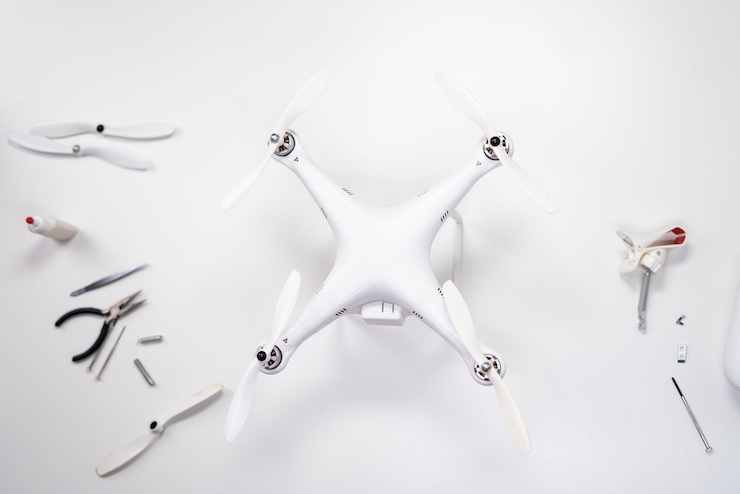Drones Make Popular Gifts Over the Holidays, But Make Sure You Are Flying Legally!

This past holiday season was unlike any in recent history. While most people look forward to spending quality time with loved ones near and far, COVID-19 restrictions put a stop to many gatherings. Economists feared that due to social distancing restrictions and decreased incomes, holiday gift spending would be down as well. While the majority of households did curb their holiday spending, people were still eager to bring holiday cheer to their families. One of the most popular gifts this year, as has been the trend over the last few years, were drone related gifts. With such a wide price range, drones make excellent gifts that almost anyone can afford.
What becomes important after an influx of newly owned drones is for people to understand how to use them responsibly. Even small, inexpensive toy drones need to be handled with care, especially in the hands of children or inexperienced fliers. These toy drones sometimes come ready to use right out of the box or could be part of a build kit. They tend to range in price from $10-$40 and are safe for indoor use making them great gifts for kids. Be sure that kids know that just because the drone is small and light doesn’t mean it can be played with carelessly. Demonstrate for kids how to use the drone’s remote with control to avoid any accidents like broken picture frames.
For larger drones intended to be used outside, the Federal Aviation Administration (FAA) has recently updated the laws governing recreational and commercial drones. Until this year, if you purchased a drone for personal use you were good to go. Of course, you would need to follow basic common sense aerospace laws, like keeping the drone in your line of sight and away from people and emergencies. Now the FAA is requiring all drones to be registered and display an identification number. It is a relatively simple process to do. Simply go to the FAA’s registration page to sign up. After filling out the forms and paying a fee of only $5, your drone will be officially registered in the FAA’s database. Print out your drone’s identification card and be sure to have it on you whenever you go flying the drone. The ID number also needs to be printed on the body of the drone, and each drone you own needs to have a unique identification number.
Many people are gifted or gift themselves a drone to be used commercially. What better way to treat someone than with an amazing tool that will help them earn an income! Any new drones purchased for commercial purposes must also be registered with the FAA. The main difference is that if you intend to use a drone in any capacity that earns an income, you must also become a licensed drone operator. The basic FAA drone license is called Part 107 and there are countless preparation materials, online, and in person classes you can take to prepare for the exam. The actual exam costs around $160 and some online courses include this amount in their fees. Anyone over the age of 16 is eligible to take the exam and become a Part 107 licensed drone pilot. Though some may feel that is a steep price for a license, the fines for getting caught operating a drone commercially without a Part 107 can be over $20,000.
Though you don’t need to obtain a Part 107 if you plan to use your new drone recreationally, it is still a good idea to study up on the material covered by the exam. Any and all drone operators are held accountable for safe drone practices, the guidelines set forth by Part 107. Some of the basics of Part 107 cover the altitude regulations of a drone, the allowed and restricted airspace, keeping the drone within visual line of sight, flight over people and vehicles, and basic safety regulations.
So, if you got a new drone over the past holiday season, congrats! You are now part of a growing community of drone aficionados. As of 2018, the FAA had registered more than 1 million drones in the United States. With so many drones being registered, they must be flown in accordance with regulations. As stated by the FAA, “Whether you’re a new drone pilot or have years of experience, rules and safety tips exist to help you fly safely in the national airspace.” Enjoy your new drone, just do so responsibly.
|